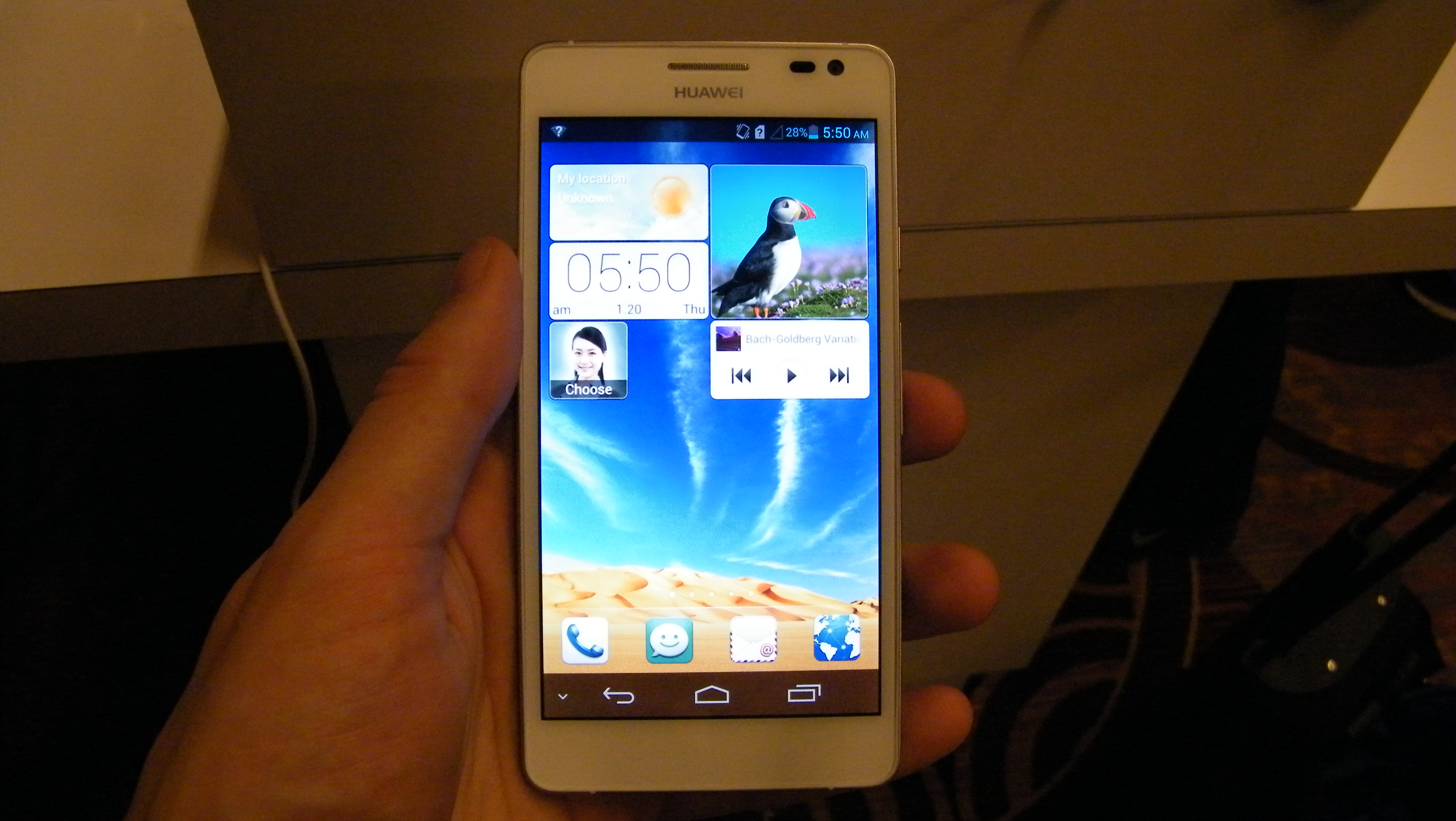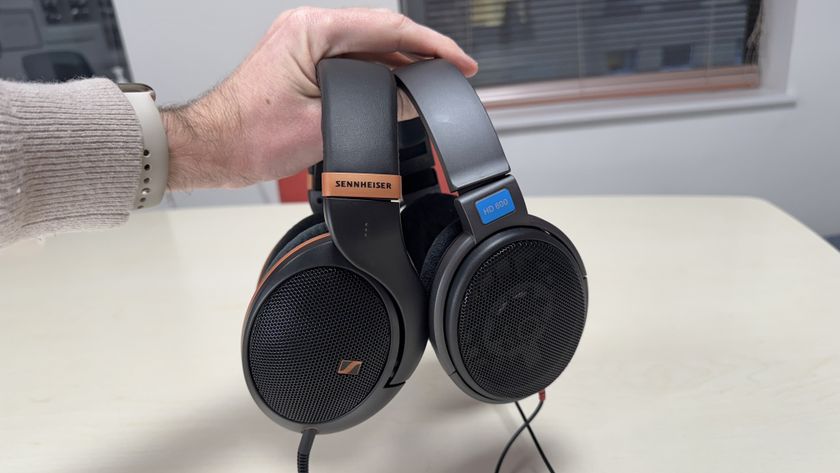Early Verdict
The Huawei Ascend D2 is the best smartphone to come out of the Chinese manufacturer to date. It's not quite as slender as rivals, nor does the interface look as slick, but the Ascend D2 is a solid handset with an impressive spec sheet.
Pros
- +
Great screen
- +
Android Jelly Bean
- +
Solid build quality
- +
Huge battery
Cons
- -
Childish UI
- -
No expandable memory
- -
Chunky
Why you can trust TechRadar
The Huawei Ascend D2 marks the Chinese firm's intent of delivering high-end devices alongside its current offering of budget handsets, and the D2 is certainly a fine starting point.
Launched alongside the huge Ascend Mate at CES 2013, the Ascend D2 provides a purer smartphone experience in terms of scale and features, which sees it go up against the newly announced Sony Xperia Z as well as stalwarts such as the Samsung Galaxy S3 and iPhone 5.
The Acsend D2 follows on from the firm's first quad-core handset the Ascend D1, which didn't make much of splash around the world.
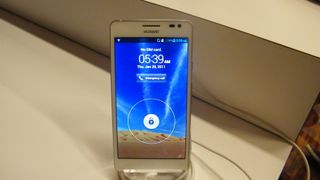
In terms of the Huawei Ascend D2 release date, it will be available in China this month and it will ship to other regions around the world in time, but exact countries are yet to be announced.
When you pick up the Ascend D2 you'll immediately notice the sturdy chassis, and this helps make it the best feeling smartphone to come out of the Chinese manufacturer.
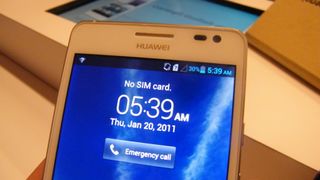
Although the rear may be glossy white plastic, which doesn't offer a huge amount of grip, the Ascend D2 sports a solid metal frame that runs around the phone providing a solid build quality.
It's so tough in fact, that Huawei CEO Richard Yu happily dropped his Ascend D2 onto the stage to show just how well built it is, and Yu claimed that it was tougher than any of its competitors – something we were unable to test, so you'll have to take his word for it.
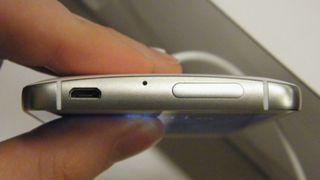
The Ascend D2 isn't the slimmest of handsets, at 9.9mm, but the curved back means the phone sits comfortably in the hand and Huawei has made a lot of effort to keep the other dimensions of the handset down.
The screen-to-bezel ratio is 69%, resulting in the Ascend D2 sporting a more compact design compared to the Galaxy S3, iPhone 5 and Nokia Lumia 920, which makes reaching every part of the screen easy as there's little space around the display to traverse.
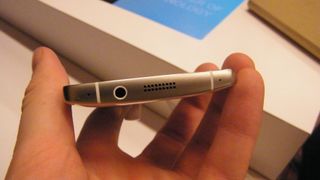
It's not the lightest smartphone on the market, at 170g, but this weight provides a reassuring presence in the hand - especially when you compare it to the super-light budget handsets Huawei has produced in the past.
When it comes to specifications, a lot of comparisons can be drawn between the Ascend D2 and its closest rival, the Xperia Z, with Huawei's flagship handset boasting a 5-inch Full HD IPS+, 1080 x 1920 display with a 443ppi pixel density.
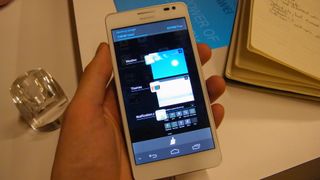
That means the screen on the Ascend D2 is pretty impressive, with a very high level of detail and great viewing angles so that several people may gather around the phone to see what's happening without any reduction in quality.
Under the hood there's a 1.5GHz quad-core processor and 1.8GB of RAM, which sees Android 4.1.2 Jelly Bean whiz along nicely, be it when flipping through the nine – yes nine! – homescreens, or when flicking between applications.
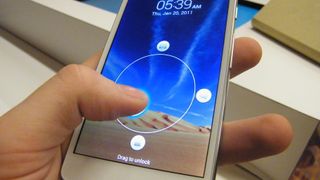
We did experience the same lag on the lock screen as we did on the Ascend Mate, which sees the Ascend D2 take a second or two to wake after hitting the power/lock key.
It's an odd situation and it made us think that perhaps the handset was turned off at first, before the display faded in and presented us with Huawei's own Android lock screen – part of its Emotion UI.
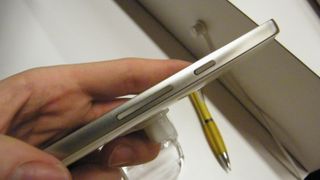
The Emotion UI doesn't impose too greatly on the operation of Android, however it does see a change in icon design and if we're honest it all looks a bit childish.
Huawei boasts that there are over 100 themes available online to download and apply to the Ascend D2, which seems a little bit like overkill. We'd still prefer the stock Android design over the less professional-looking Emotion offering.

A cool feature that does come as part of the Emotion UI overlay on the Huawei Ascend D2 is the ability to hide the Android navigation keys at any point, enabling you to take full advantage of the 5-inch Full HD display.
Just tap the small down arrow to the left of the keys and the bar will disappear with the screen automatically readjusting to fill the space.
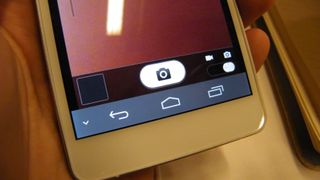
A simple slide up from the base of the display will see the navigation tools return and the screen adjust once more to ensure nothing is hidden behind them.
The stock keyboard on the Ascend D2 isn't something to write home about. It provides a simple, functional form of input for short messages, but anything longer than a couple of lines and its accuracy may start to irk.

This isn't a huge issue as you can download third party alternatives from Google Play, and we'd recommend you do so if you fancy plumping for the D2.
There wasn't any internet connection for us to play with during our hands on time with the Huawei Ascend D2, but we did notice that the handset comes pre-installed with the stock Android browser instead of Google Chrome.
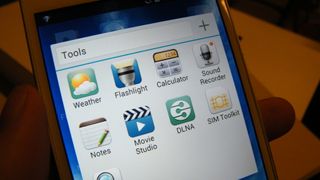
We prefer the Chrome browser over the Android offering and it can be picked up for free from Google Play if you fancy checking it out. We'll put both browsers through their paces and see how quick it is in our full Huawei Ascend D2 review.
Thanks to the Full HD display on the Ascend D2, video playback looks fantastic, with great colour reproduction. Audio also gets a boost from Dolby's surround sound technology, providing an immersive experience.

We were impressed at just how good the video playback was, since it's almost on a par with the Sony Xperia Z – which has the added bonus of the Japanese firm's Mobile Bravia Engine 2 technology from its TVs.
On the back, the Ascend D2 sports a 13MP camera, once again matching the Sony, with a single LED flash and HDR mode.
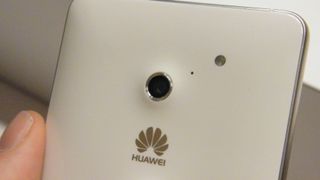
The shutter was quick, enabling us to snap photos in succession, and the HD display proved an excellent viewfinder for us.
In terms of features in the camera app, there's nothing too crazy, with a handful of scene modes and effects along with the option to switch to the front-facing camera and record 1080p video.
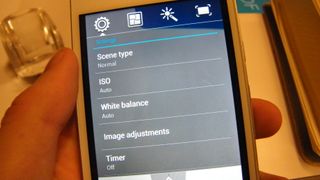
Picture quality is acceptable but if anything the Full HD display doesn't do the Ascend D2's photos any favours, with images sometimes appearing a little grainy or washed out – something that may not have been so apparent on a lower resolution screen.
Huawei has managed to pack a sizable 3,000mAh battery into the Ascend D2, which it claims will give you two full days of usage, and can be fully charged from flat to 100 per cent in just 140 minutes - not bad at all.
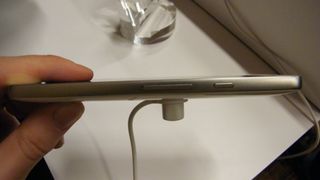
We were unable to put this to the test, but we'll be sure to find out if this is true during our in-depth Huawei Ascend D2 review. If it is, it could be a great selling point for the handset.
You can't remove the back cover, so there's no access to the battery. There's just a microSIM slot on the exterior of the handset, meaning no expandable memory option either – although this does help the D2 be dust- and waterproof.
The Ascend D2 does thankfully pack in 32GB of storage, so that should please most people, but there will be a few who will be put off by this lack of expandability.
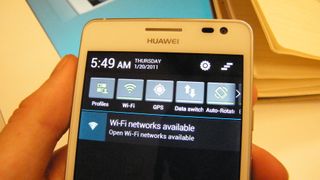
Early verdict
The Huawei Ascend D2 is the best smartphone to come out of the Chinese manufacturer to date, and it looks to be one that can really challenge the big hitters in the mobile market.
Sure it's not quite as slender, nor does the interface look as slick, but the Ascend D2 is a solid handset with an impressive spec sheet, and we look forward to putting it through its paces in our full review.

TechRadar's former Global Managing Editor, John has been a technology journalist for more than a decade, and over the years has built up a vast knowledge of the tech industry. He’s interviewed CEOs from some of the world’s biggest tech firms, visited their HQs, and appeared on live TV and radio, including Sky News, BBC News, BBC World News, Al Jazeera, LBC, and BBC Radio 4.
What is a hands on review?
Hands on reviews' are a journalist's first impressions of a piece of kit based on spending some time with it. It may be just a few moments, or a few hours. The important thing is we have been able to play with it ourselves and can give you some sense of what it's like to use, even if it's only an embryonic view. For more information, see TechRadar's Reviews Guarantee.
Most Popular






